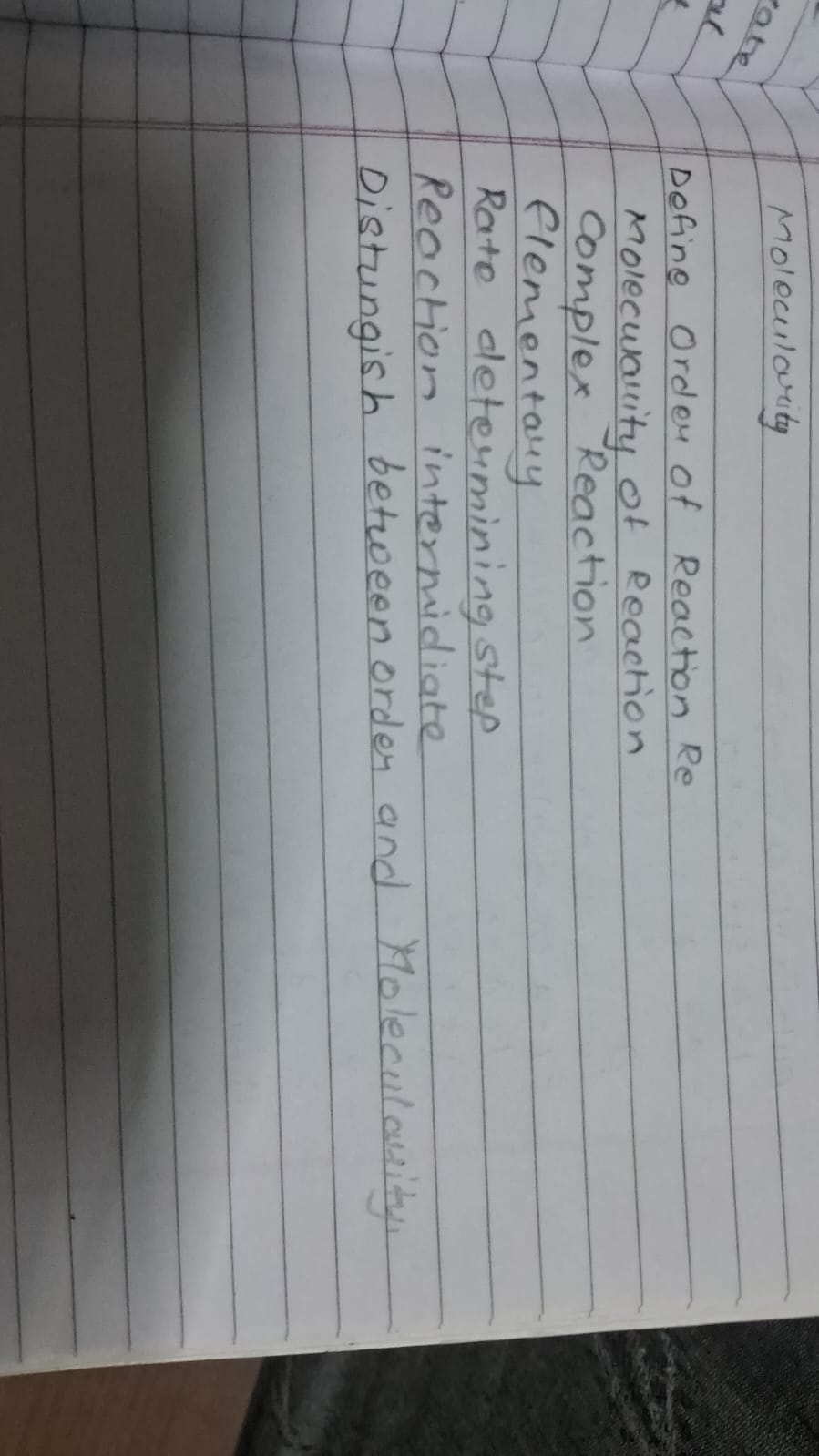Define order of reaction and molecularity. Discuss complex reactions, rate-determining step, and distinguish between order and molecularity.

Understand the Problem
The question lists several concepts related to chemical reactions, specifically about the definitions of molecularity, order of reaction, complex reactions, rate-determining step, and the distinction between order and molecularity. It appears to be a prompt for understanding these terms rather than a specific question.
Answer
Order: sum of exponents in rate equation; Molecularity: number of molecules in a step.
Order is the sum of concentration exponents in rate equations. Molecularity is the number of molecules in a reaction step. Complex reactions have multiple steps; the slowest is the rate-determining step. Order is empirical, while molecularity is theoretical.
Answer for screen readers
Order is the sum of concentration exponents in rate equations. Molecularity is the number of molecules in a reaction step. Complex reactions have multiple steps; the slowest is the rate-determining step. Order is empirical, while molecularity is theoretical.
More Information
Order of reaction provides insight into how reactant concentration affects the rate whereas molecularity only applies to elementary steps. Complex reactions often involve multiple intermediates and the rate-determining step is the slowest, controlling the overall reaction rate.
Tips
Common mistake: Confusing order with molecularity. Remember, order is found through experiments and can be fractional, while molecularity is always a whole number.
Sources
- Order and molecularity of reaction - BYJU'S - byjus.com
- 14.6: Reaction Mechanisms - Chemistry LibreTexts - chem.libretexts.org
- Difference between order and molecularity of a reaction - unacademy.com
AI-generated content may contain errors. Please verify critical information